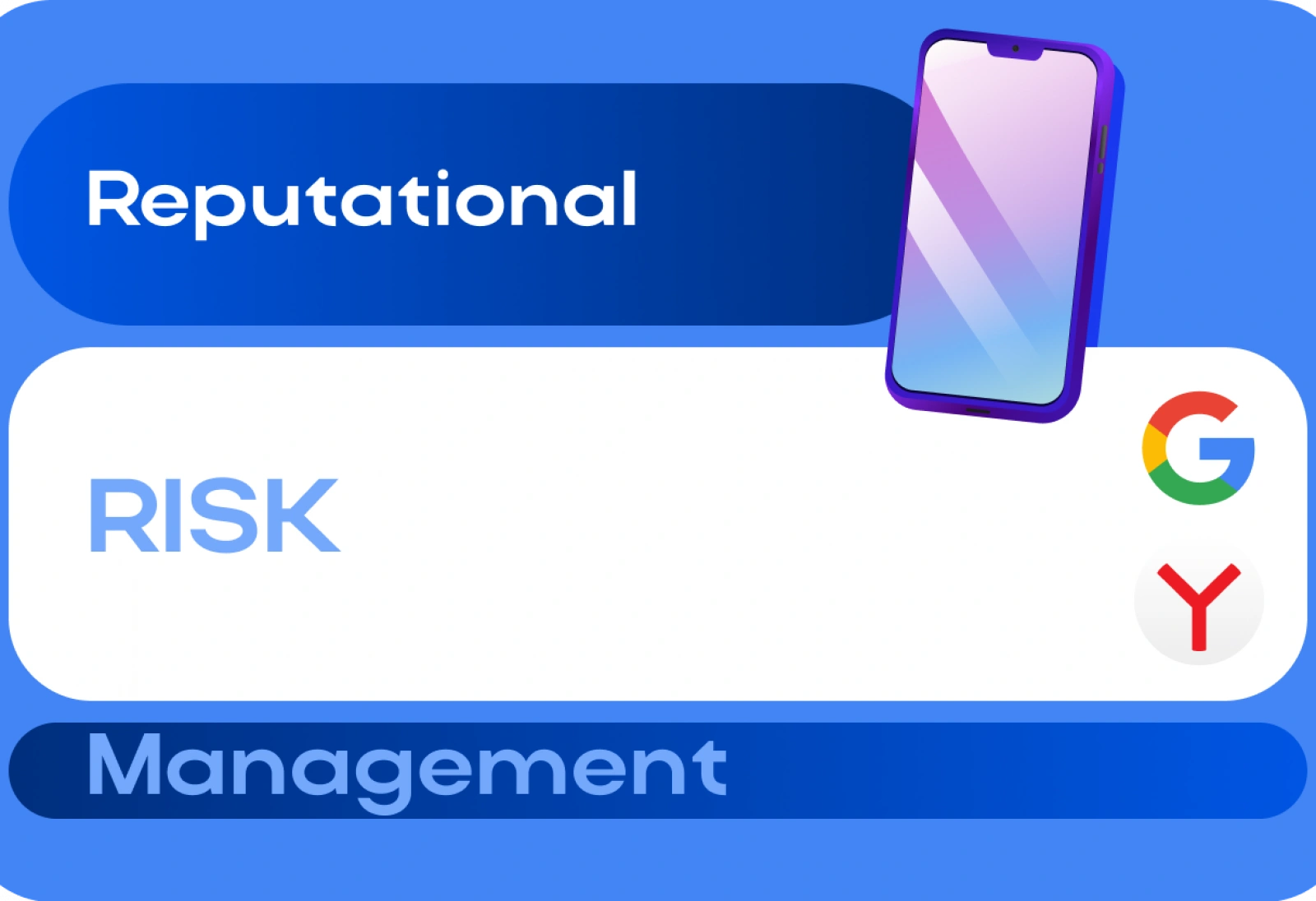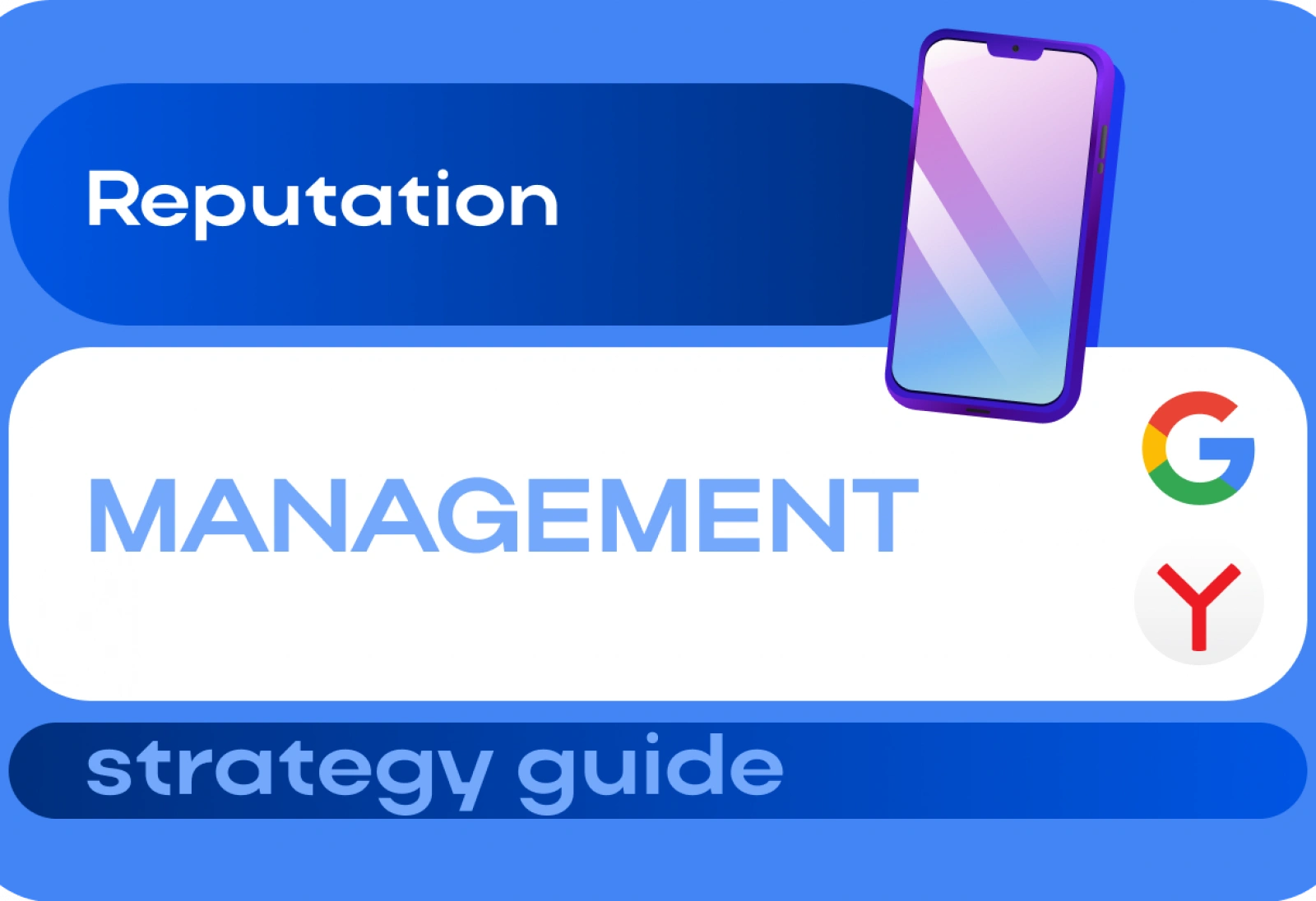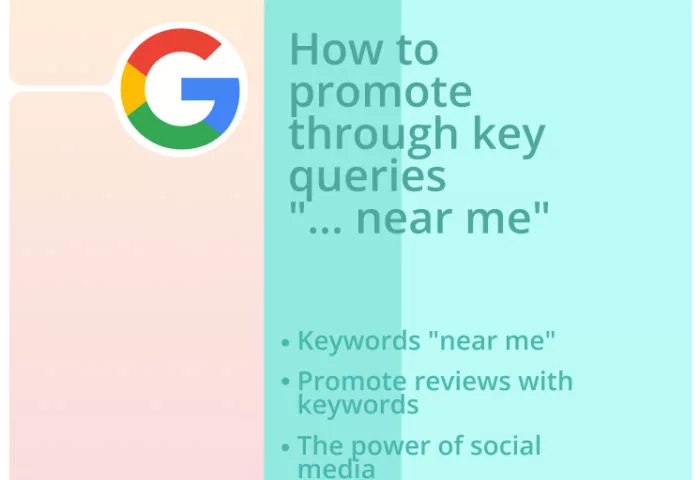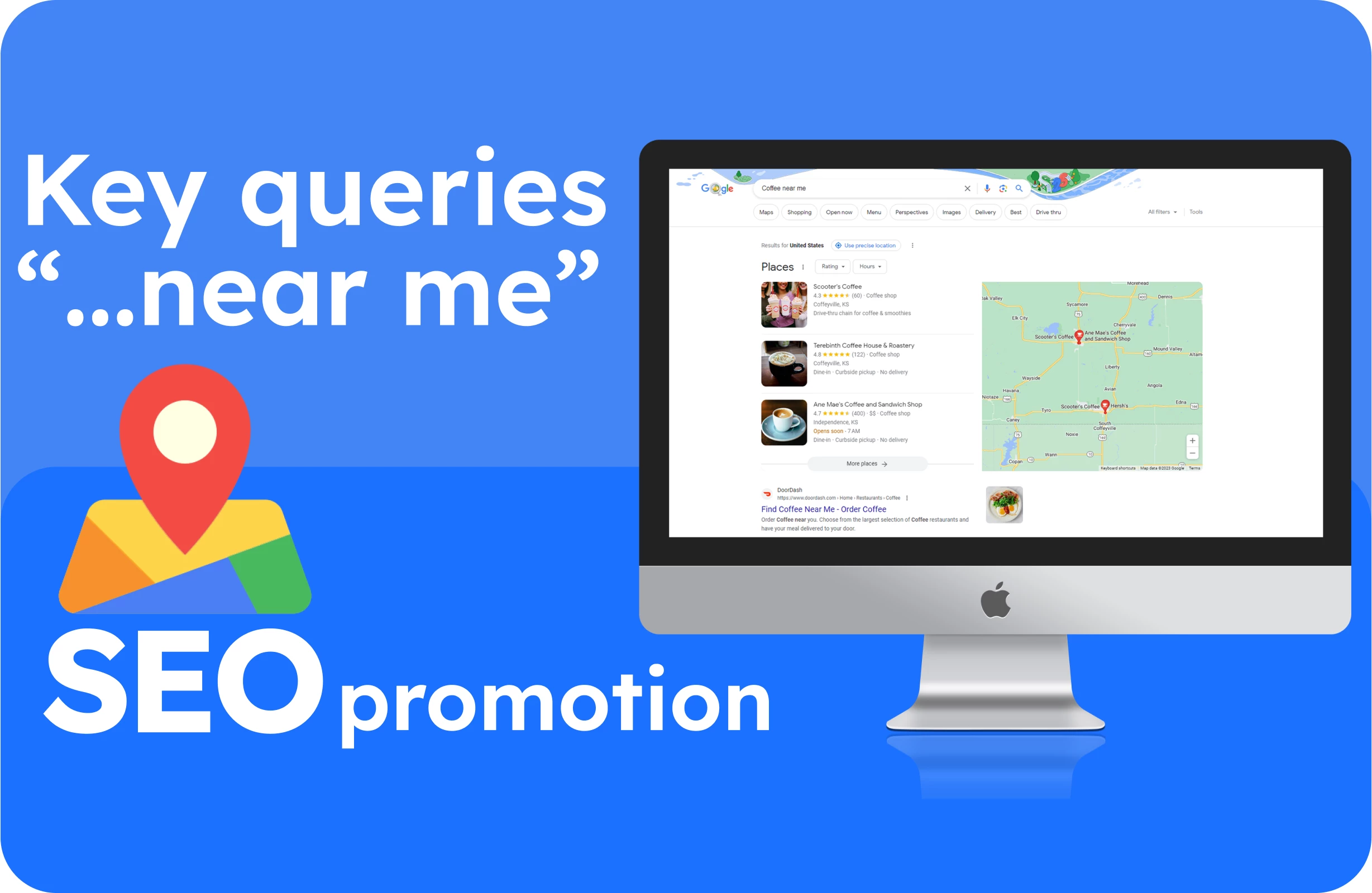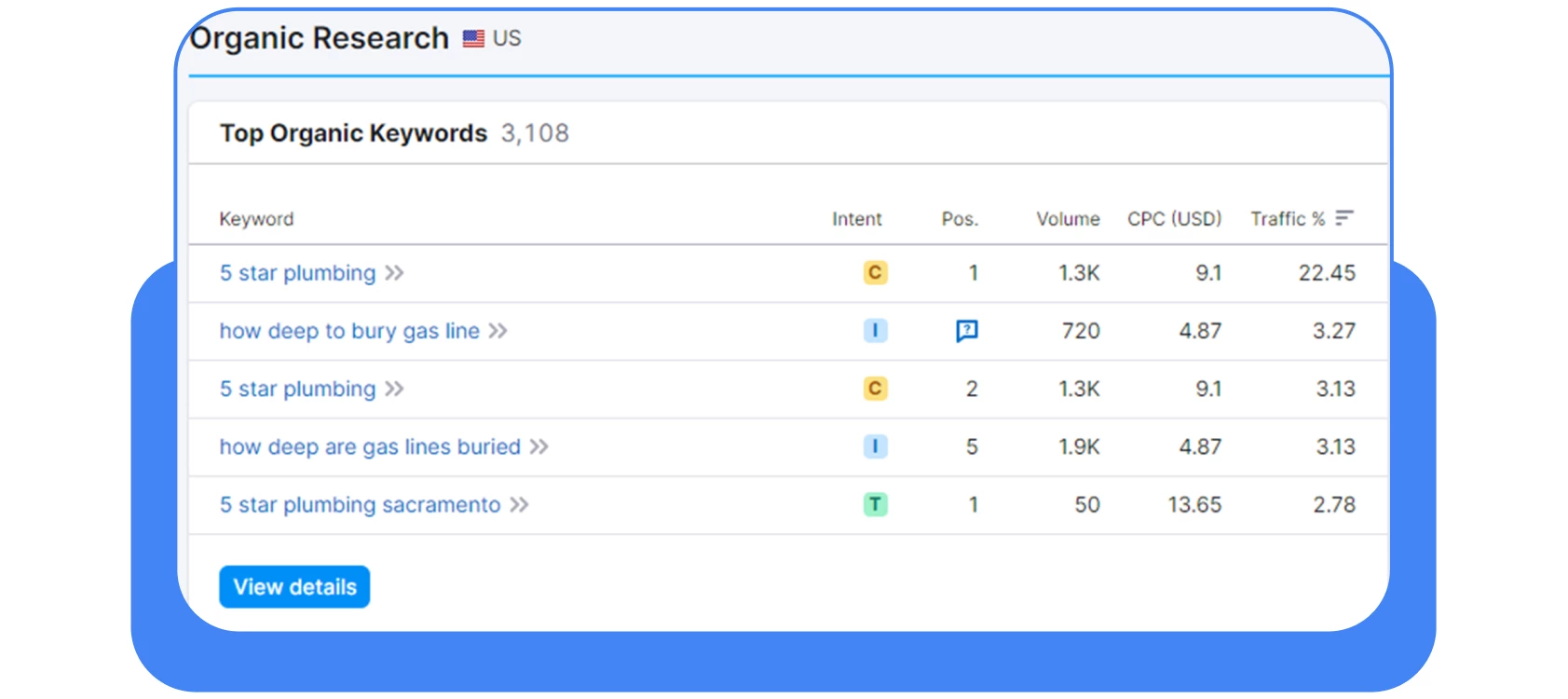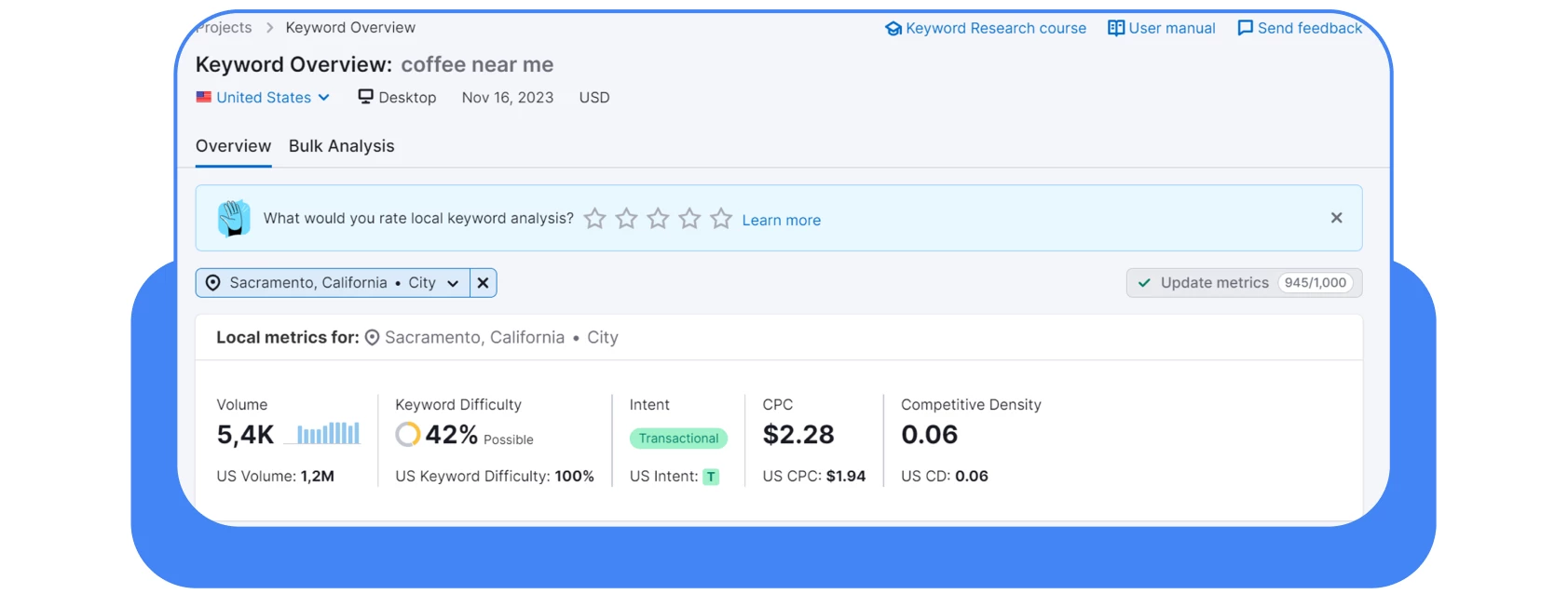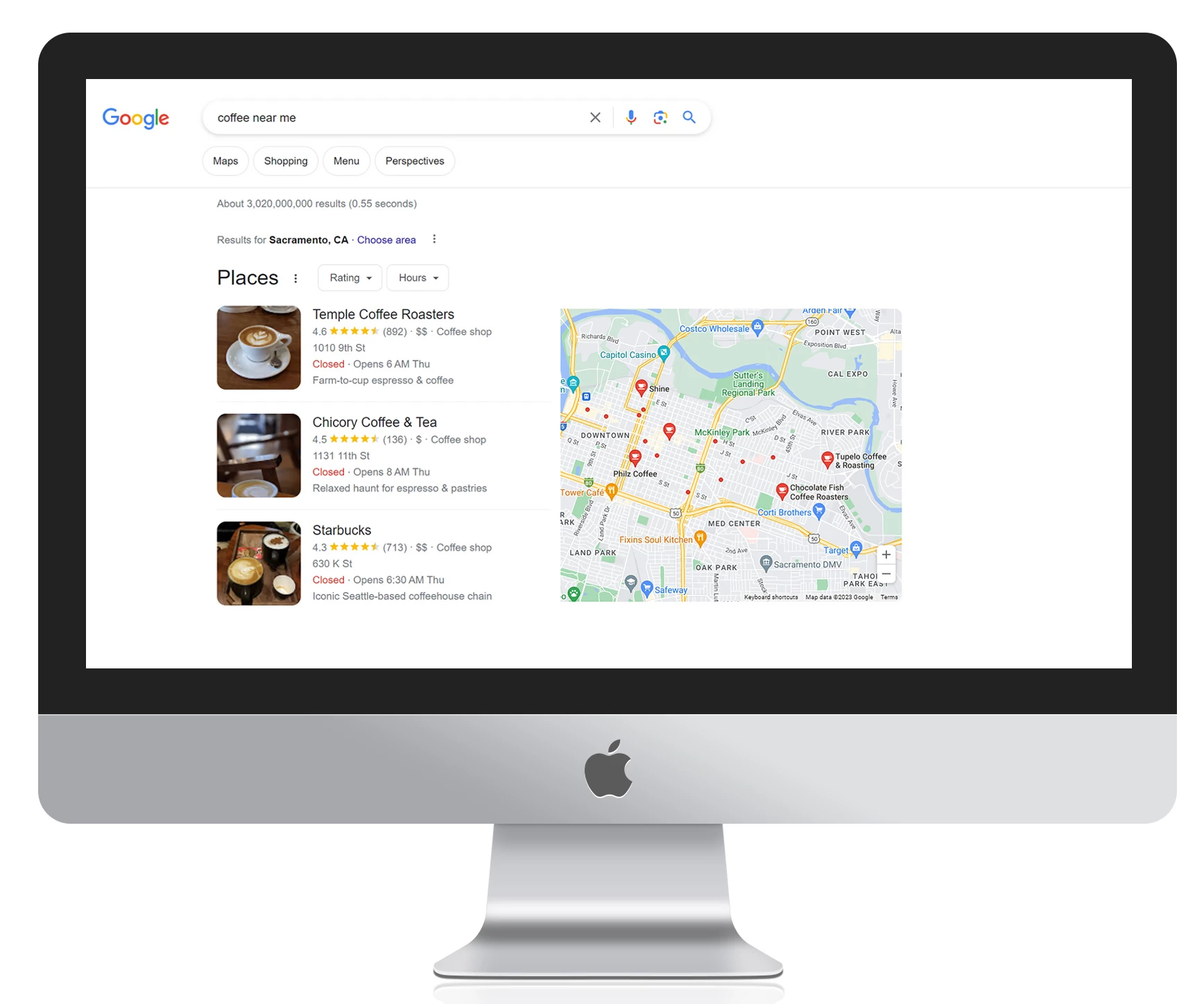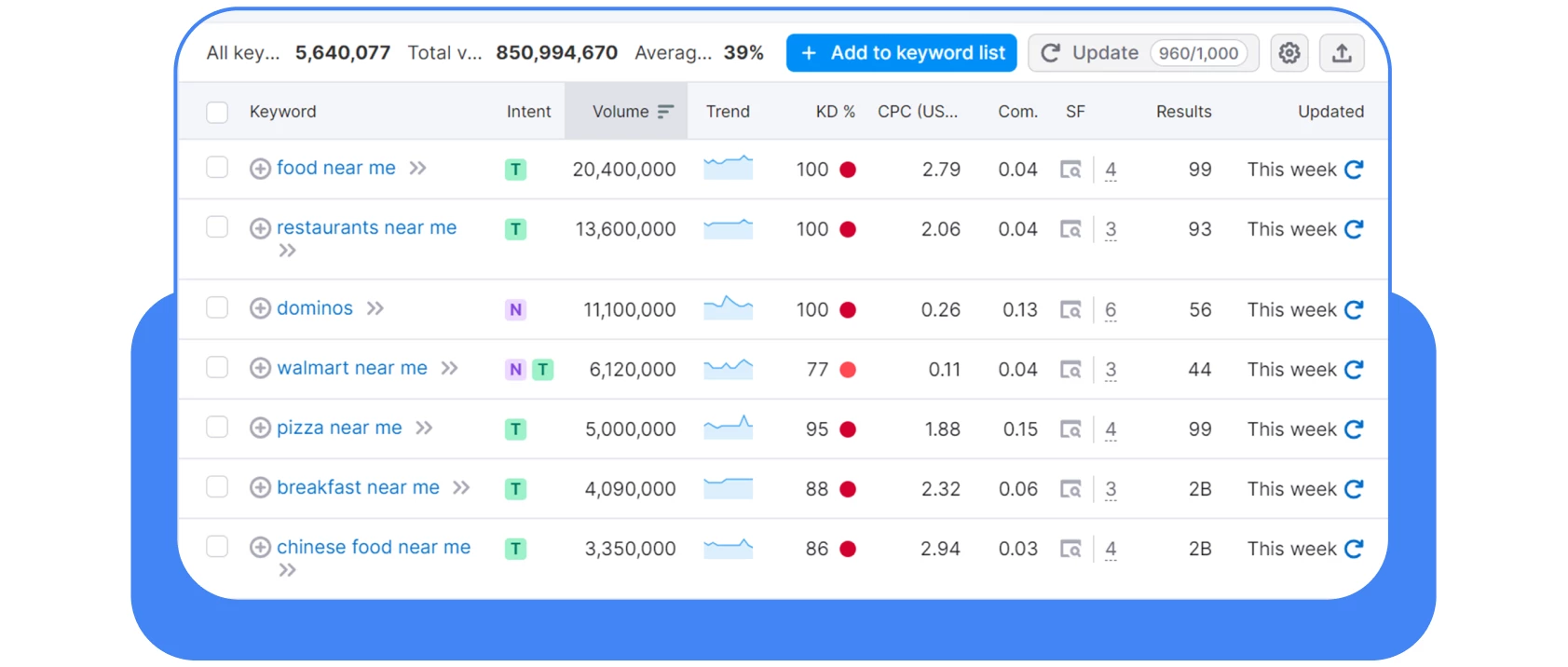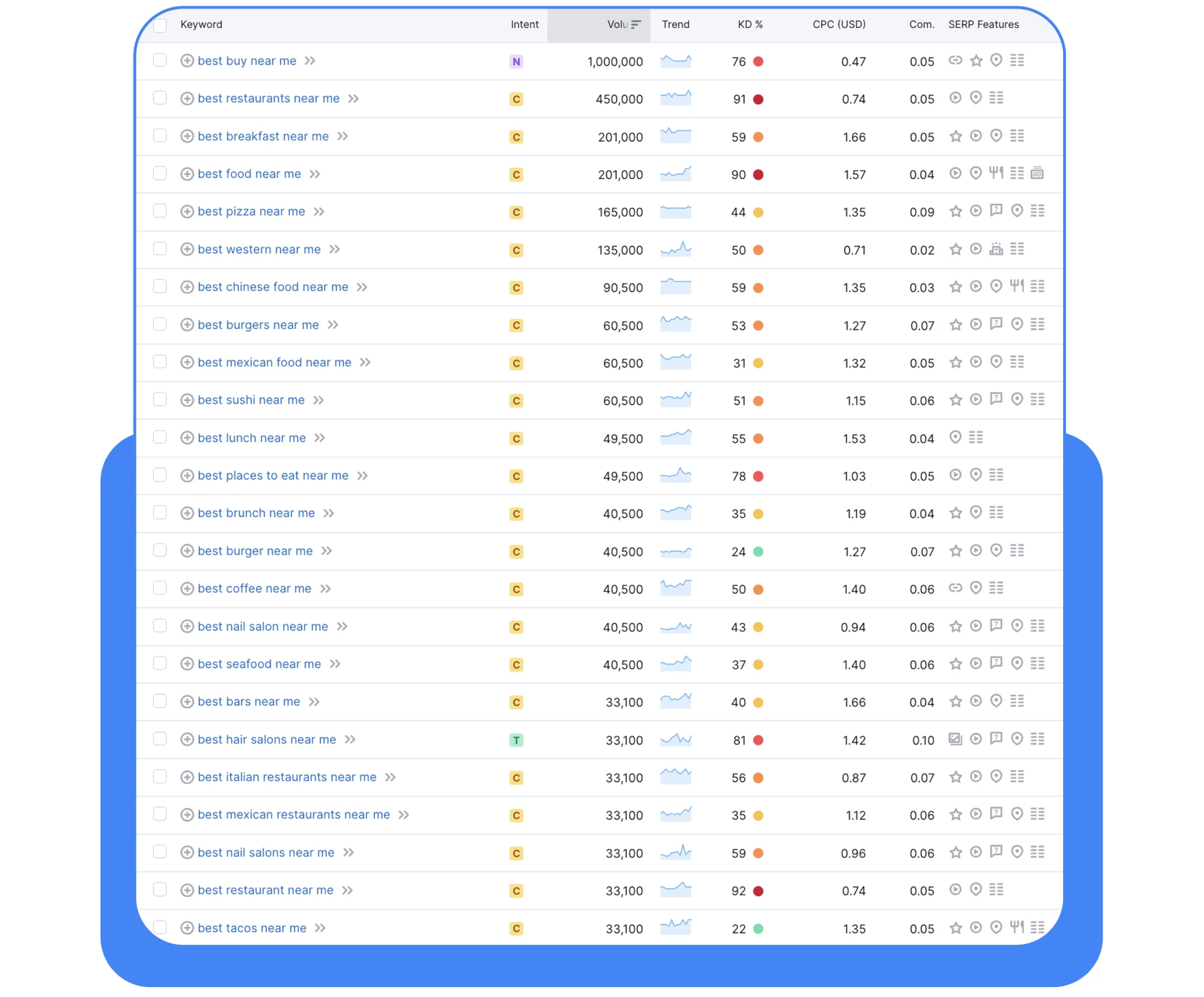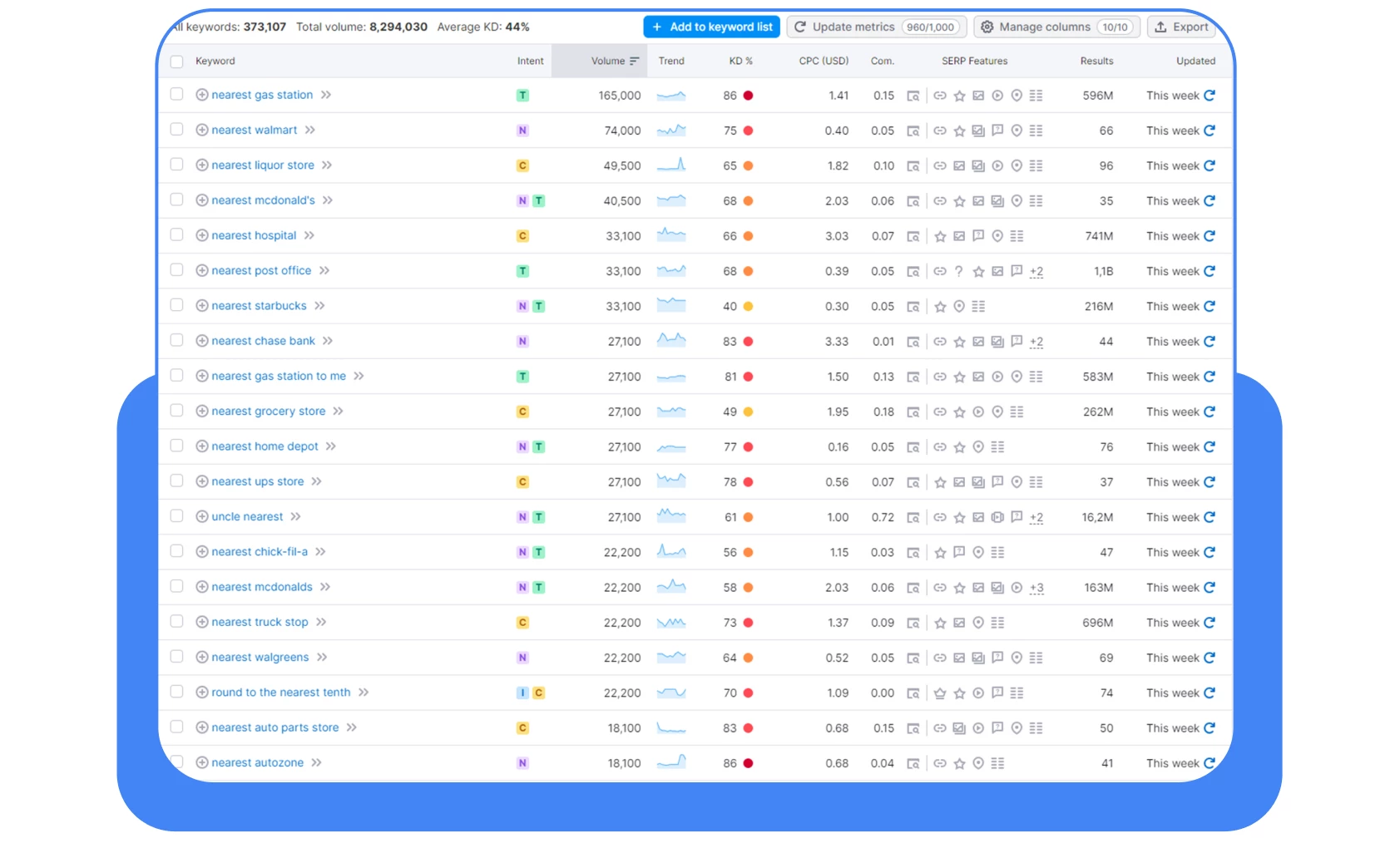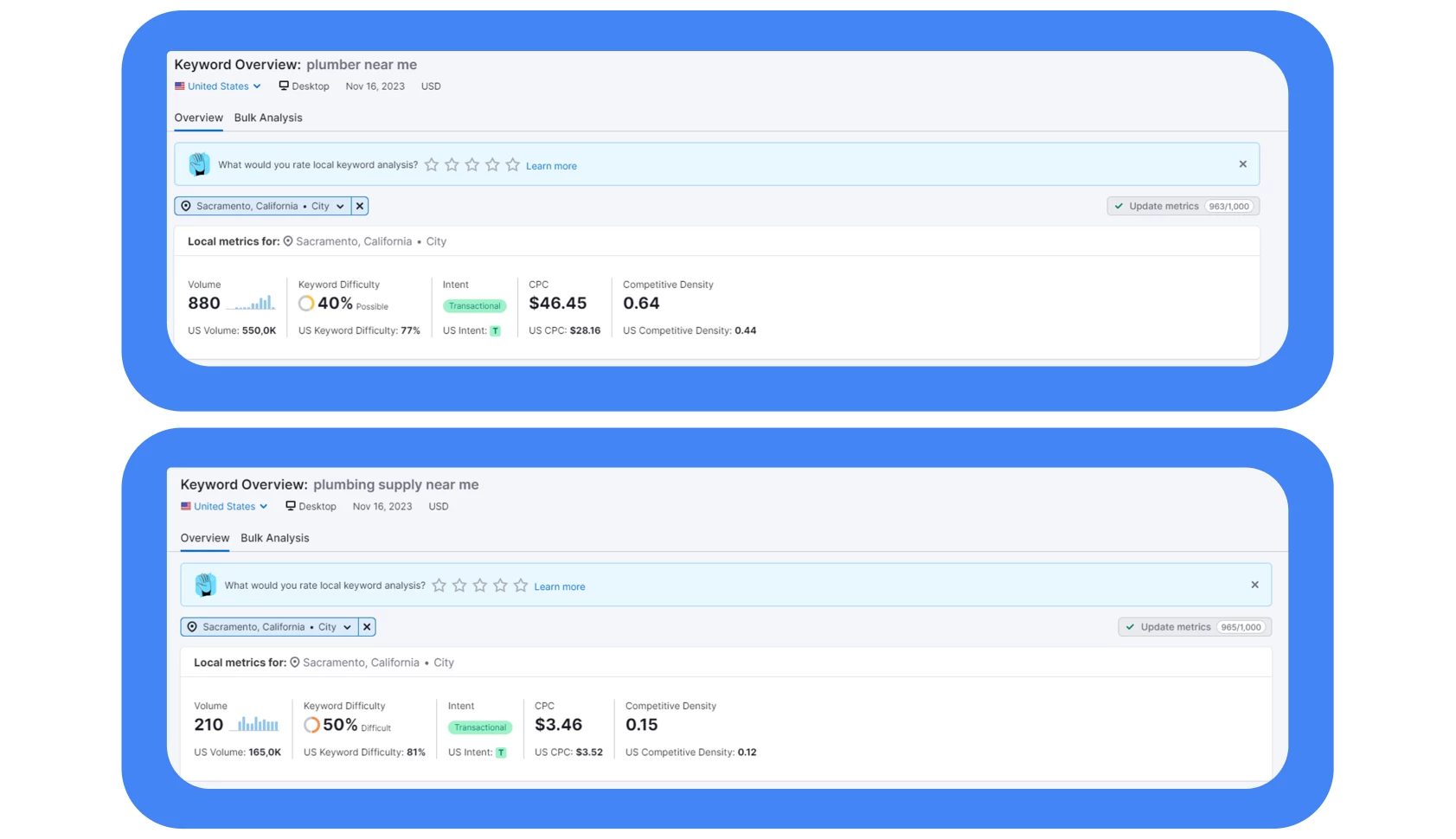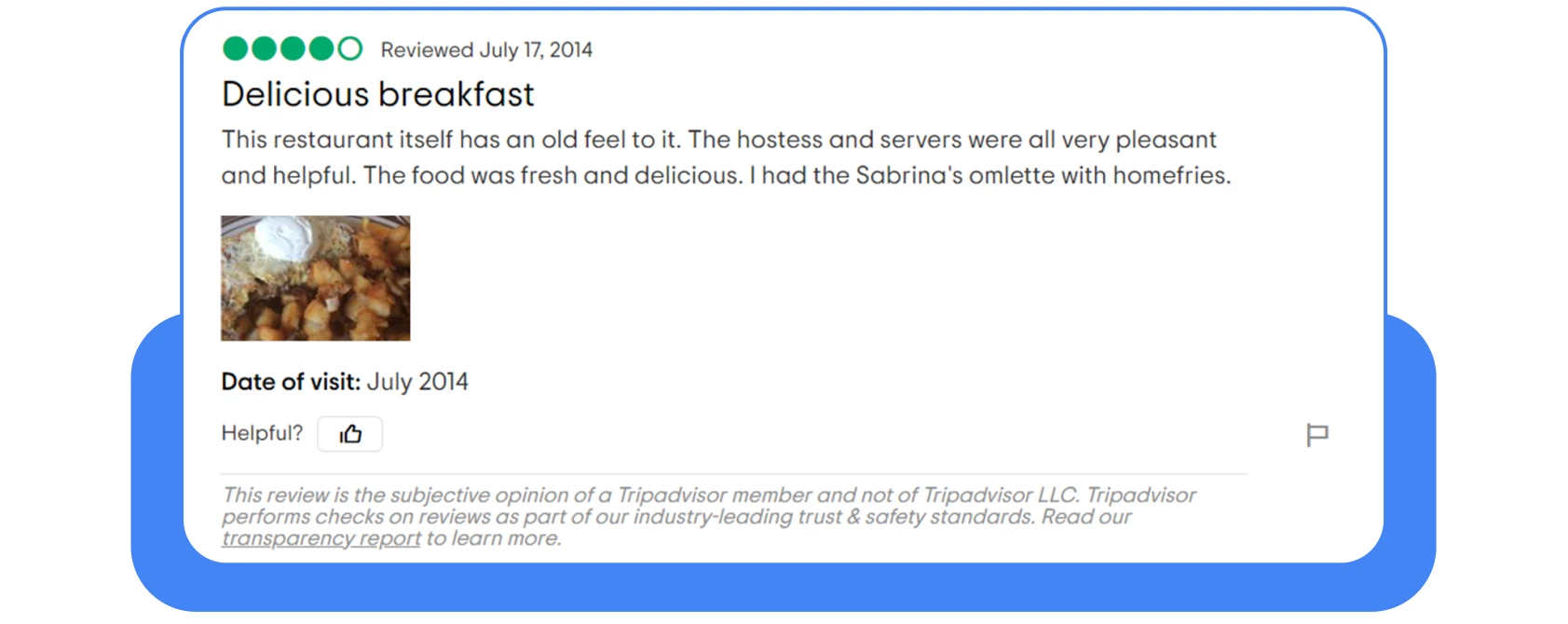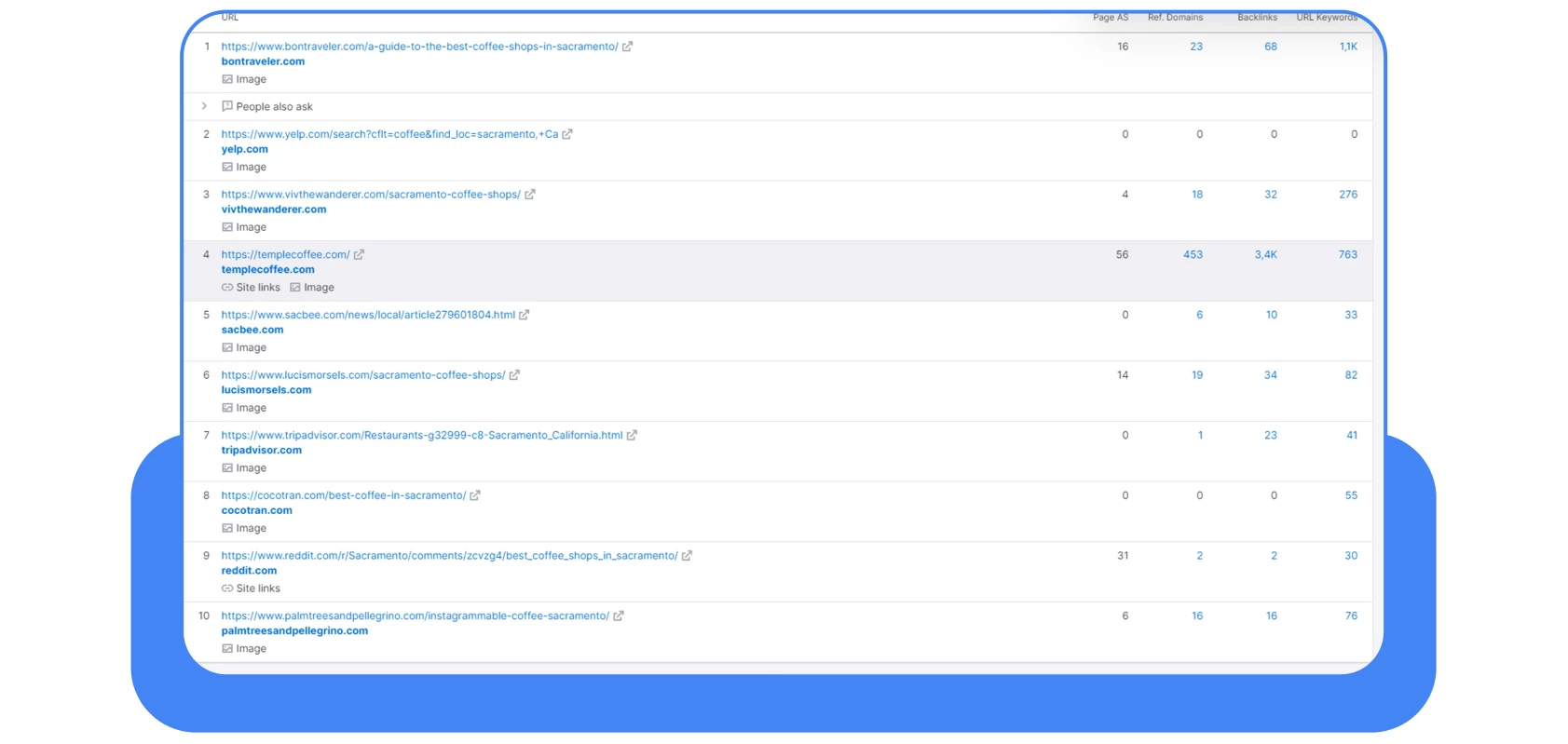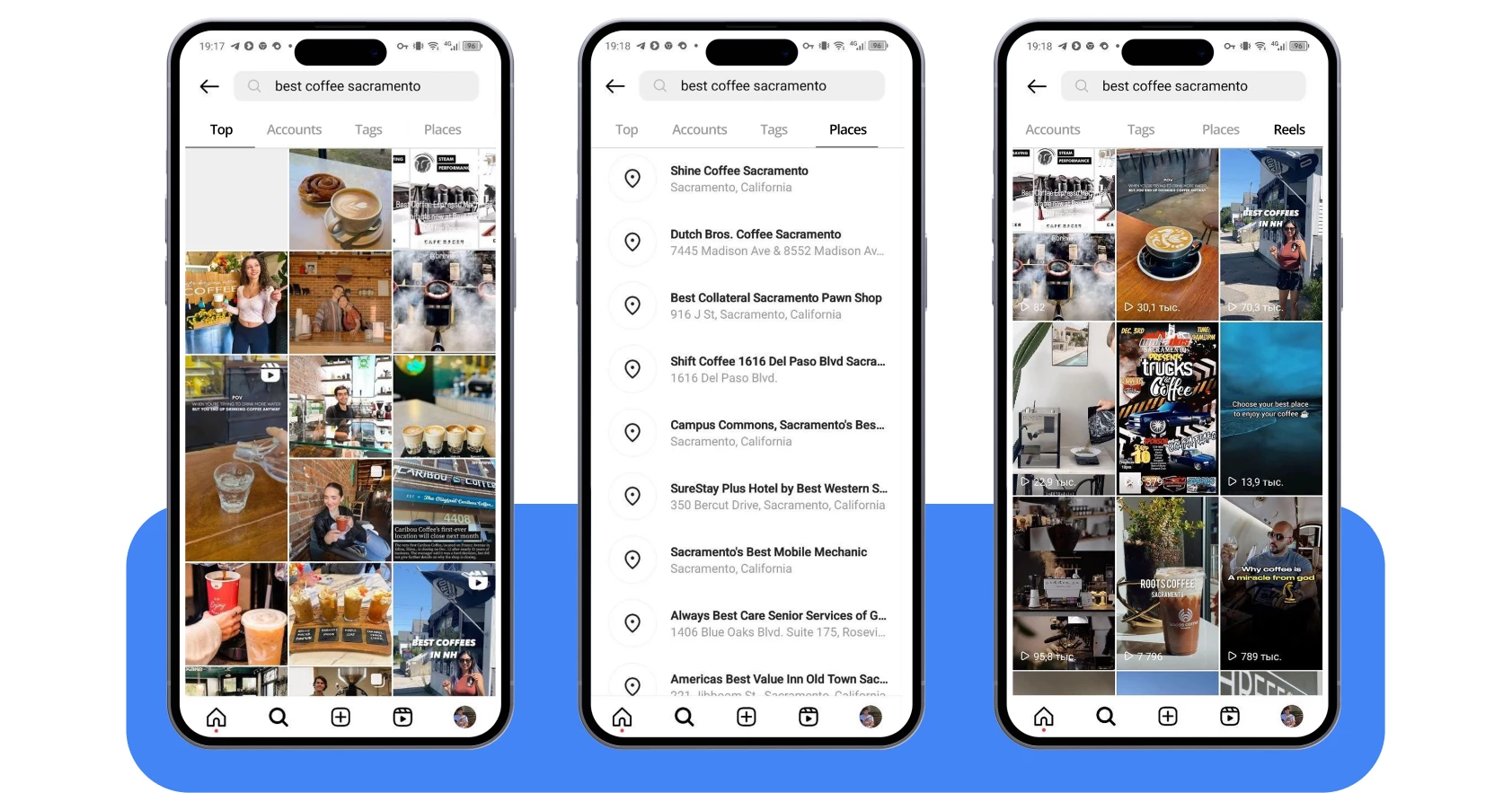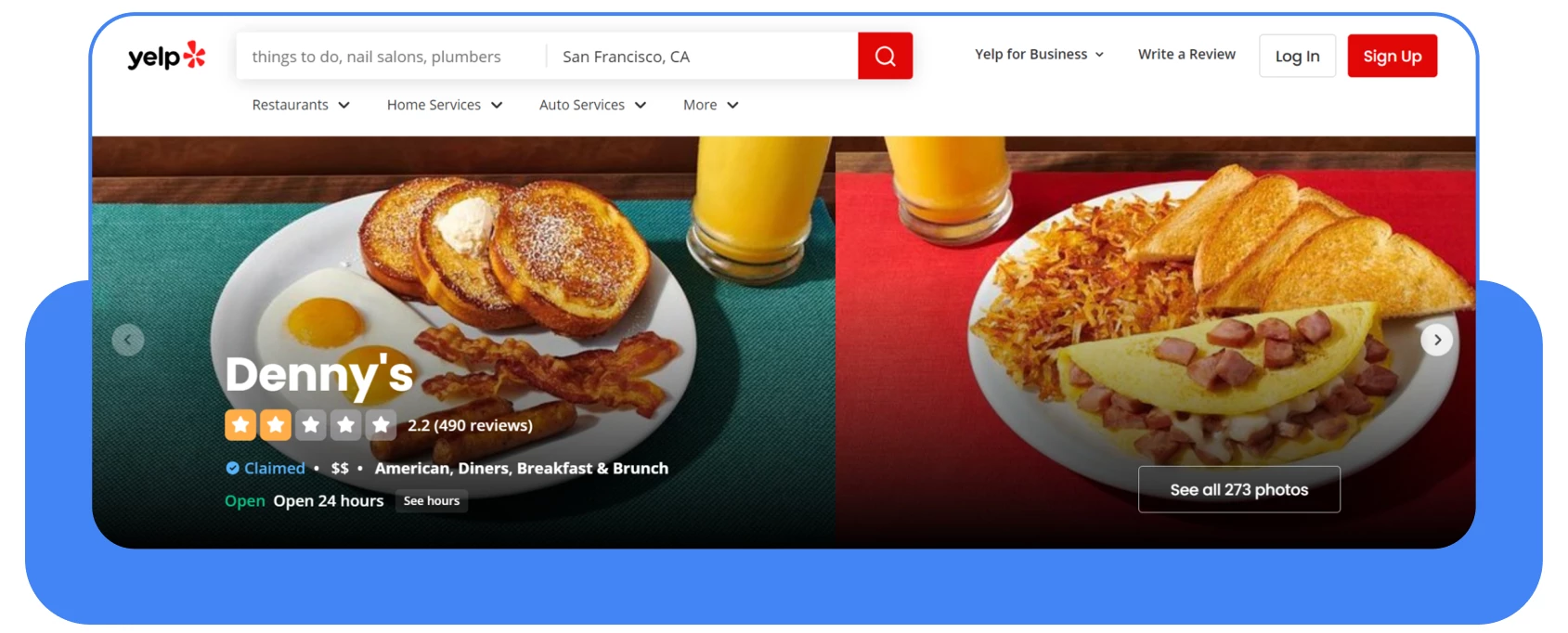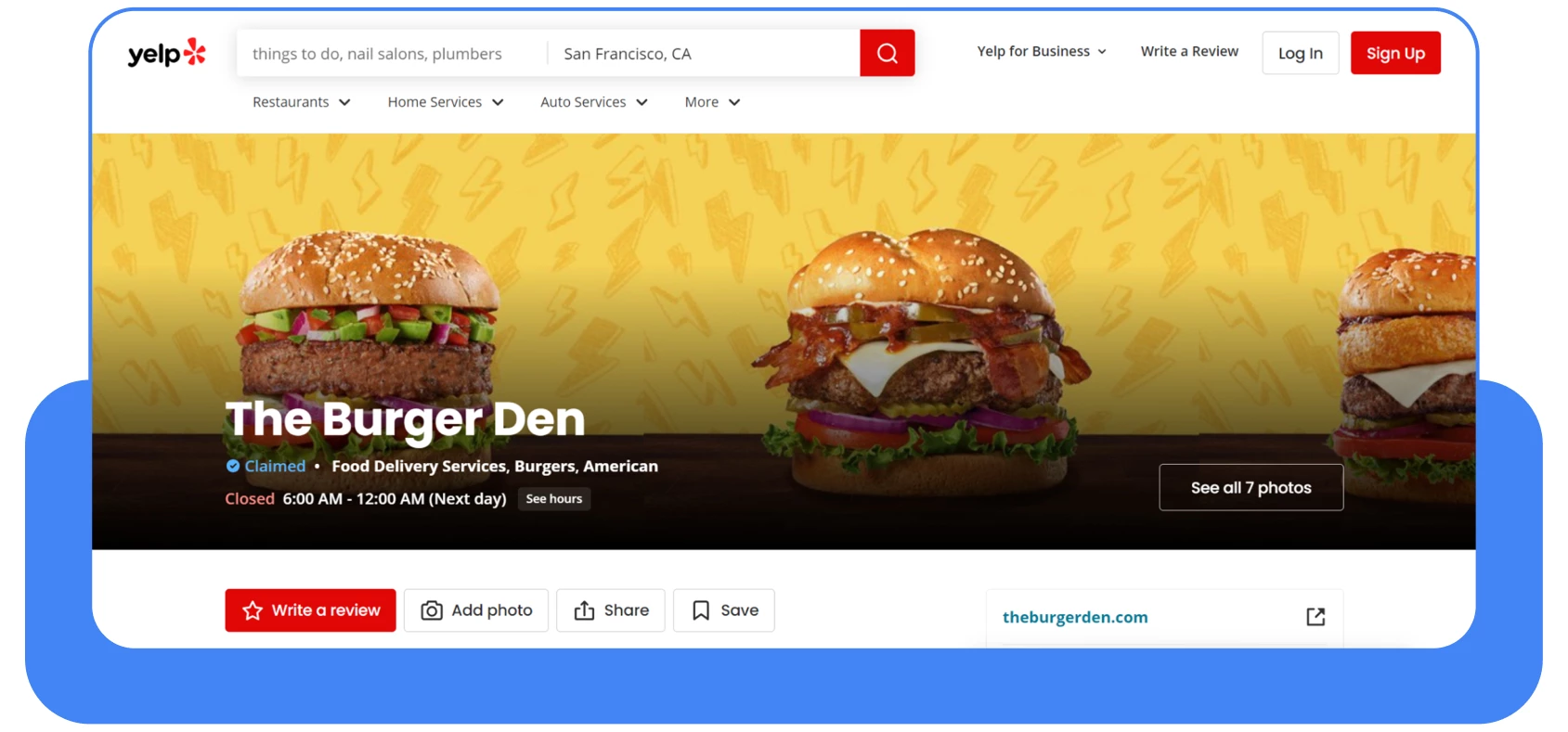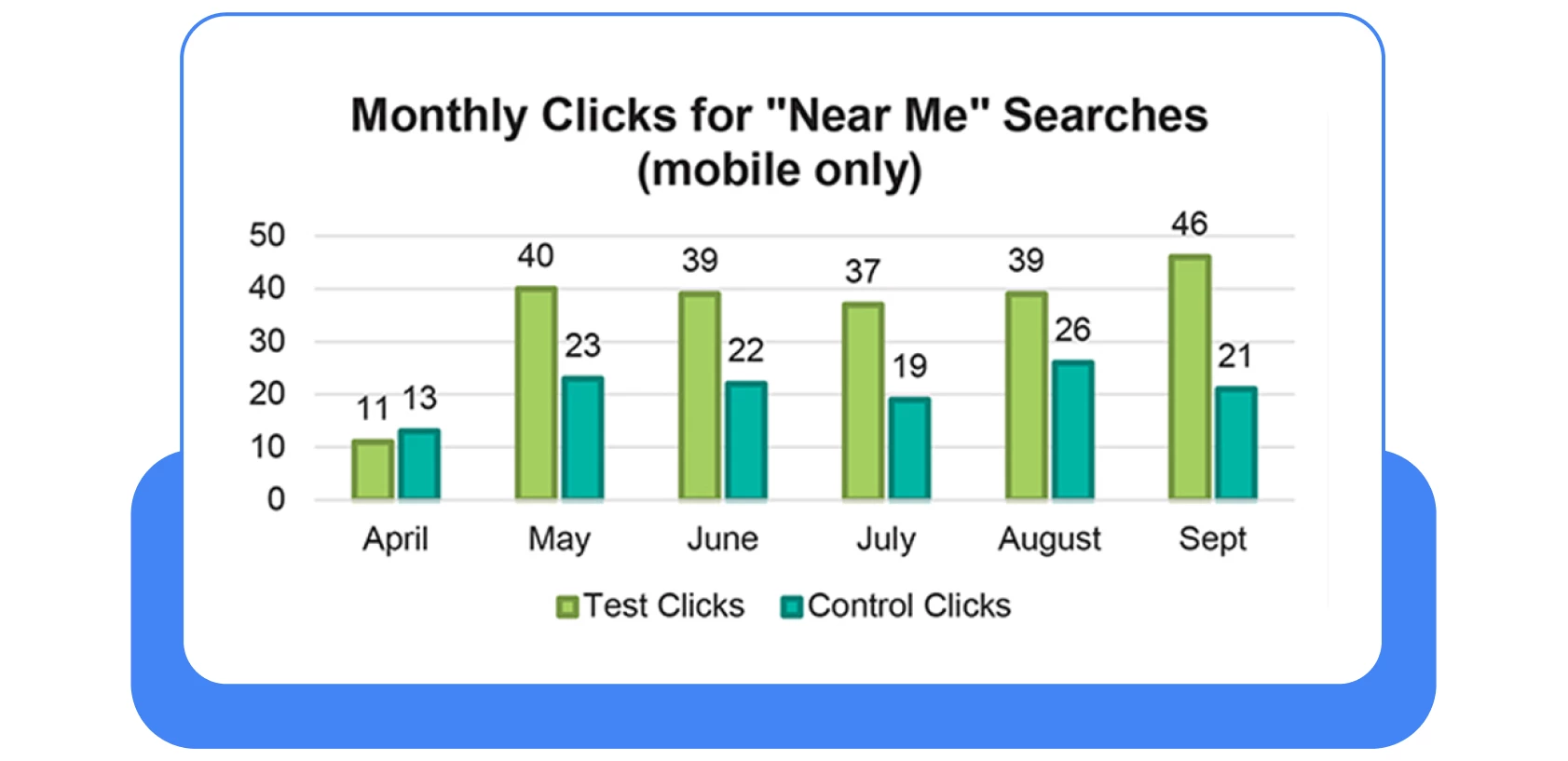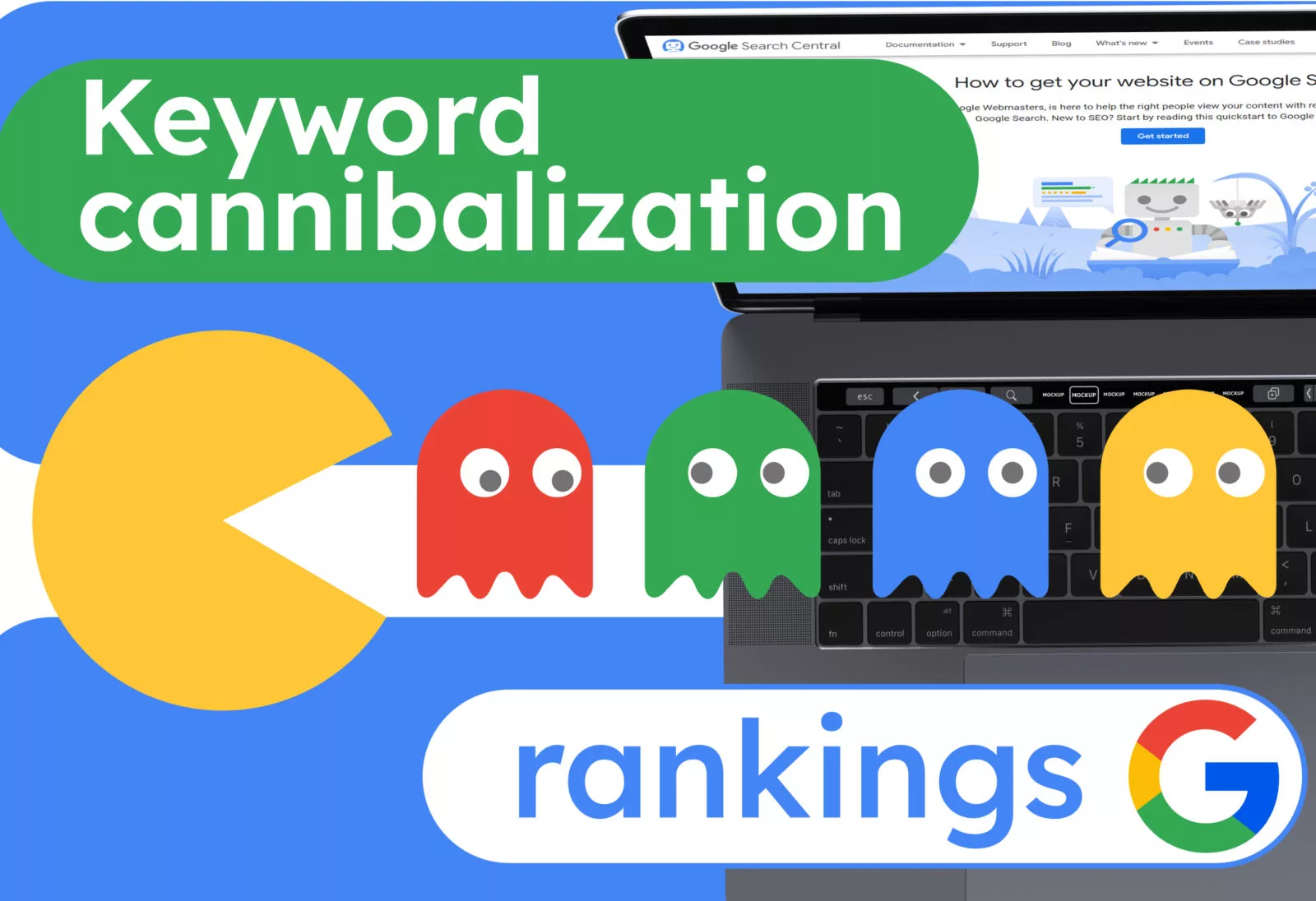How to promote through key queries “… near me”
Greetings to everyone! Today we will talk about how to promote through search queries “… near me”, we will analyze some nuances and find out how effective it is.
Just recently, we came across a website called 5-starplumbing.com, where they provide plumbing services in Sacramento and San Jose. And they actively attract traffic through similar queries in search results:
We all know that this is a long-standing strategy, to take domains that are related to search queries. By the way, just recently (at the end of October), an article was published on Verge about the influence of company names related to search queries.
But the problem is that businesses often ignore certain queries like
“cafe near me”, “store near me”, etc. And it’s a pity, because their search volume is huge, and the intent is often commercial or transactional, which makes them super relevant for local businesses.
Keywords “near me”
But before we discuss the keywords themselves and optimization for them, let’s talk about the pros and cons of this method.
The main problem is distance — it is the most important factor for ranking for these types of keywords. If we use the query “coffee near me”, most coffee shops will simply not rank if they are not actually near me.
Let’s assume the owner of a coffee shop wants people in Sacramento, Los Angeles, and New York to find their establishment when searching for “best coffee near me”.
To do this, they need to optimize their website and Google Business profile (reviews) for the query “best coffee” + the coffee shop must actually have offline locations in these cities. And not just in these cities, but near the person conducting the search. It’s a bit problematic, isn’t it?
The main question is: Does it make sense for a coffee shop or restaurant from one state/city to try to rank in searches for these queries in other cities or regions?
Of course, if we’re talking about fast food, in situations where you can actually open a dark kitchen for delivery and provide your services in any city, then it makes sense. Another case is when your restaurant is really good (so good that visitors are willing to travel to you from distant locations), for example, if you have Michelin stars or are known for a specific dish.
Let’s take a look at the overall search volume for such queries in the United States:
Keywords that include the phrase “near me”. Now let’s also look at keywords with the phrase “best”:
And finally, let’s take keywords with the phrase “nearest”:
It can be noticed that such keywords are very relevant for almost all local companies: food service, auto service, handyman services, stores of various directions. Huge tons of organic local traffic that will convert into sales.
Good news: You don’t have to try to get local traffic outside of your service area. For most “local companies”, it is enough to cover the area where the company is located in order to reach the necessary level of profit through SEO.
It is enough to select and focus on the most popular keywords for your business and then optimize your website and Google profile. For a visual example, let’s go back to the plumbing website. We mentioned earlier and select keywords for Sacramento, looking at their total search volume.
The total search volume is over 1000. Actually, even biting off 25-30% of this traffic will still be a great boost to your organic reach. What else is a plus for such queries? People don’t want to spend a long time studying the SERP, they find the fastest option and convert.
What do you need to do?
Now let’s discuss a series of actions that will help you take the top positions in the search results for such queries. Interestingly, not everything here depends on regular SEO optimization.
Method #1 – Review systems with optimized listings
Motivate your customers to leave reviews on platforms that already rank high in search results for keywords relevant to you. For example, if you have a coffee shop, just look at the SERP for the presence of such listings. For example, for the query “best coffee shop” with the location of Sacramento, the top three positions are occupied by 3 aggregators.
Method #2 – Promote reviews with keywords
It’s simple: look for the most popular reviews of your establishment on platforms like Yelp or TripAdvisor and optimize pages on your website and social media around those keywords.
It’s a good idea to check their search volume using any free service beforehand. If you have a blog, for example, you can create an article on the topic of “delicious breakfast” where you provide tips on making a tasty breakfast and invite users to visit your coffee shop, attaching a screenshot and a link to the review.
Method #3 – Local media
Find local news resources or personal blogs that can write an article about your business or include it in a thematic list. You can work on a barter basis or pay for advertising, as long as the advertisement looks organic and includes links to your website and social media.
You can also collaborate with another establishment, if you have different specialties, and ask them to mention you on social media with the widest reach.
Method #4 – Harness the power of social media
If you think that the new generation only uses Google for search, you are greatly mistaken. Over 40% of the new generation uses social media as a search engine to find restaurants, clothing, and other types of services. Thanks to geotags, content creators can tag the location of businesses, and users can search for them.
Here’s an example from a popular social network.
Therefore, collaborating with bloggers on social media to create content will increase brand recognition and rankings not only in Google but also in platforms like Instagram or TikTok.
Method #5 – Create a virtual brand
And now for a little life hack. To generate more traffic for your company, you can create a virtual brand. For example, if you have already optimized your coffee shop for keywords related to coffee but also want to receive traffic for searches like “breakfast” or “ice cream”, you can create a brand with those keywords.
A good example is the restaurant chain Denny’s, which opened a second brand called The Burger Den and optimized it for keywords related to burgers.
So, establishments with a traditional attachment to one cuisine or dish can reach a larger audience and attract more organic traffic.
And what’s the profit?
To do this, let’s use the experience of our colleagues who published their experiment on moz.com. The article states that for the “near me” keyword test, 82 websites were taken, 41 websites for the control group, and 41 websites for the test group. In the test group, the title and description meta tags were changed, as well as the H1 tag, adding the phrase “near me”.
The entire test lasted for 5 months and only mobile search results were analyzed. By the last month, the websites in the test group saw a more than two-fold increase in mobile impressions for the “near me” query, reaching 8,833 impressions and 46 clicks.
Conclusion
Dear friends! Thank you for reading the article to the end! I would like to say that optimization for keywords of this type is indeed a powerful tool for local SEO, so it is definitely worth using. This is especially evident in large cities and is most relevant for mobile search results.
